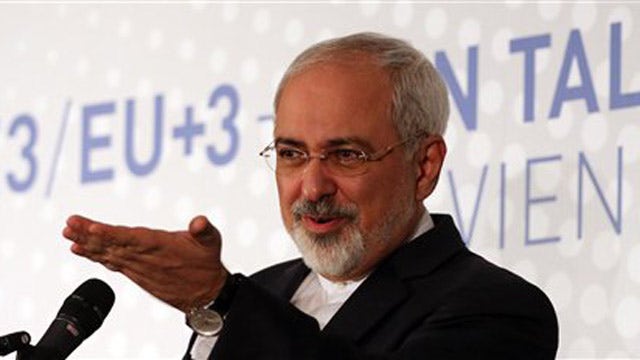US extends nuclear talks with Iran
Brit Hume on Iran failing to compromise on nuclear weapons issues and the resignation of Defense Secretary Chuck Hagel
James Carville sees a game-changing issue for the Democrats in 2016.
It’s pretty simple, really. All the Obama administration needs to do is cut a deal with Iran on nuclear proliferation in the next two years. “If that happens,” he wrote Tuesday, in The Hill, “the effect on the American political debate could be enormous.” In a good way.
Carville is one of the smartest Democratic strategists around. The creator of “it’s the economy, stupid,” knows a winning issue when he sees one. Any deal that the Obama administration might make with the Islamic Republic of Iran on nukes would certainly “fundamentally change the foreign policy debate in 2016.”
[pullquote]
The problem is, there is no deal that will actually achieve what America claims to want: An iron-clad guarantee that Iran will not build an infrastructure that will enable it to build and deploy nuclear weapons.
The details of negotiations that the U.S. (along with Russia, China, Great Britain, France and Germany) have been purposely obscure. What is clear is that they have been futile. They were supposed to reach agreement in late November, but they did not. Instead, the sides agreed to keep talking for another seven months.
Secretary of State John Kerry, the lead American negotiator, presented this last week as if it was some sort of breakthrough.
“There has been real and substantial progress,” he said. “There are new ideas…we now see the path for resolving some issues.”
Kerry didn't elaborate. If there had been any kind of real progress, he would have said so; or, at the very least, leaked it.
The simple fact is that Iran is not willing to agree to the basic American demand that it forsake its nuclear weapons programs.
They think this is none of Washington’s business if the Islamic Republic, whose rallying cry is “Death to America,” develops a “peaceful” nuclear program capable of producing weapons that can be mounted on long range missiles and fired at Crusaders, Zionists, Sunnis and other infidels.
In Kerry-speak, “there are significant gaps on fundamental issues." That’s one way to put it. And, in a moment of reflection he admitted that, “success is not inevitable.”
The Iranians are more optimistic. President Hassan Rouhani is confident that a deal can be reached “sooner or later.” Since the Iranian don’t want any kind of limitations, “sooner or later” works just fine for them.
Rouhani’s boss, Supreme Ayatollah Khamenei, has all the time in the world. If the Americans insist on talking, Iran will talk. It will also continue to covertly work on its nuclear and weapons programs.
And so the wheels of diplomacy will continue to spin. If nothing comes of all the talk, at least it will enable President Obama to leave office claiming that Iran didn't get the bomb on his watch (the same empty boast made by President George W. Bush in 2008).
On the other hand, Obama and Kerry might decide to sign off on a meaningless agreement, lift sanctions and claim a great historic achievement. This is basically what the U.S. did when it withdrew troops from Iraq; deposed Qaddafi in Libya; and sacrificed its ally, Hosni Mubarak, for a non-existent democratic movement in Egypt. The Iranians have seen this enough times to know it is a possibility.
The analysis of the Ayatollahs might be cynical, but not as cynical as James Carville's. He isn't sure if there will be a deal or not, and he doesn't claim to know—or care—if one would be good for American security or international stability. His business is politics, and any agreement that Obama reaches with the Iranians looks to him like a win-win for the Democrats.
If Obama and Kerry cave to the Iranians, it can be presented as a statesmanlike move by a past (and perhaps a future) Nobel Peace Prize laureate. Even better, the Democratic presidential candidate in 2016 (presumably his friend and longtime client Hillary Clinton) would ride the wave of good feelings that inevitably follows in the immediate wake of “peace in our time” pacts.
Carville admits that there will be opponents to such a deal—“the Israel lobby, the neocons, perhaps the Saudis, the Tea Partiers” and Democratic “allies in the Jewish community”—but they be tarred as partisans, special pleaders or warmongers.
Carville doesn't say he is for an agreement at any price, or what such a deal would mean for the security of the United States or the safety of the world. He'll leave that stuff to the Big Thinkers.
He's just thinkin' out loud about the politics of the deal, "I don't really have an idea if this is going to happen," he writes. "But if it does, I will just echo what Vice President Biden said about the Affordable Care Act. 'It’s really a big f***ing deal.'”
Can't argue with that.









































